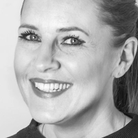TLDR: No, we don’t think so - at least not far enough.
Is Aesthetics About To Be Regulated?
What’s happening?
The Beauty, Aesthetics and Wellbeing All-Party Parliamentary Group (BAW-APPG) has finally published the findings and recommendations from its inquiry into botox, fillers and similar aesthetic non-surgical cosmetic treatments.
Cool, what did the APPG discover?
Well, nothing that we didn’t already know. The bottom line is the industry is like the wild west and there is a complete lack of a legal framework of standards around these treatments, which has left consumers at risk and undermined the industry’s ability to develop.
So what do they recommend the Government do about it?
The Group made 17 recommendations for Government to plug this regulatory gap, including:
- Setting national minimum standards for practitioner training;
- Mandate practitioners hold a regulated qualification in line with national standards;
- Legislate to introduce a national licensing framework;
- Make fillers prescription only;
- Develop and mandate psychological pre-screening of customers;
- Extend the ban on U18s receiving botox and fillers to other invasive aesthetic treatments;
- Place advertising restrictions on dermal fillers and other invasive aesthetic treatments;
- Require social media platforms to do more to curb misleading ads and posts promoting these treatments.
Sounds great! When will this all happen?
Whoa there! It may be that none of it happens. It’s just a report, that the Government can choose to simply ignore if it wants to. Even if it does decide to make some changes, a lot of the recommendations require huge scoping out, a tonne of consultation and planning, and changes to the law - which can take a very, very long time.
What does Glowday think about the report?
Okay. Buckle up. There are some good ideas and recommendations, and even if one of them is implemented it’s better than nothing. As a bare minimum, it *may* mean some of the REALLY bad ‘beauticians’ and lay injectors are dissuaded from even bothering to fill someone’s lips.
But, it’s a total wasted opportunity and most of the problems could have been solved far more simply by mandating the industry to ensure only medically-qualified practitioners can offer non surgical aesthetic treatments.
The report simply does not go far enough. It’s over-complicated, leaves ambiguity, and will all take too long to implement.
We can’t see this becoming a Government priority while it earns so much income (through VAT). Big bucks matter more than botched Botox and women will continue to be put at risk .
Why does Glowday believe only medically qualified practitioners should be allowed to practise non-surgical aesthetics?
Where do we start! Here’s a list of reasons we sent to the APPG and Nadine Dorries MP.
1. Injectable treatments, threads, certain chemical peels, microneedling treatments and laser treatments are MEDICAL. By virtue of the fact customers are patients and the devices are medical and the medicines...well, medicines. The problem in the UK, unlike other countries, is that the lack of regulation means that they are largely considered beauty treatments by consumers.
2. Healthcare professionals are accountable to their statutory body (GMC, NMC, GDC, GPhC and HCPC). Each of these bodies issue their own standards, guidance, and frameworks for their members to adhere too - all of which are designed to protect patients.
3. As members of a statutory regulatory body, medics will have annual appraisals and show evidence of continued professional development.
4. Medics are fiercely protective of their professional status and their statutory registration. Being ‘struck off’ would be damaging and embarrassing for them, it has grave consequences.
5. Patients can raise complaints with statutory bodies and report medical professionals for incompetency and complications. There is recourse if things go wrong.
6. Lay practitioners are not accountable. Of course, they hold themselves personally accountable, but there is no statutory body to whom they answer to, and thus there are zero consequences or avenues for recourse for patients.
7. Medics are experienced and trained in the anatomy and physiology of the human body.
8. Medics are experienced and trained in treating complications and issuing emergency care.
9. Medics are experienced and trained in patient care.
10. Medics are required to carry out informed consents (lay practitioners are not) They are highly skilled at explaining to patients the risks and benefits of treatment. This is essential to ensure patients can make an informed decision as to whether a treatment is right for them or not.
11. Medics are competent in identifying mental health conditions such as Body Dysmorphia Disorder and can signpost patients for specialist help. Beauticians/hairdressers/lay practitioners are not.
12. Medics are confident, comfortable, and willing to say ‘no’ to patients. They have a legal 'duty of care' and must put their patient’s welfare first and profits second. Of course, there will always be exceptions, but this is a reasonable generalisation.
13. The duty of care medics have extends to the time following your treatment. They must ensure they look after you from the consultation and during and after your treatment. They will ensure they manage complications and seek assistance from colleagues if required. Lay practitioners can refuse to handle a complication, and the patient is forced to seek the help of either the NHS or a medic.
14. A lay person can learn to inject and start putting what they have learned into practice without having any medical background or real understanding of anatomy, how to treat or even recognise complications.
15. A medic will insist on a consultation with a patient before any treatment. They will ensure they complete a full medical history. They will understand medical contraindications.
16. Medics must be adequately insured for the treatments they offer. It is a legal requirement. Lay injectors are not mandated to have adequate insurance.
17. The majority of advanced and acclaimed aesthetic training courses simply do not allow non-medics to train with them.
18. Notwithstanding, introducing standardising aesthetics training, while helpful and a step in the right direction, does not give that person the 4-6 years of medical training, patient care, and emergency response experience.
19. The most reputable medical malpractice insurance companies will not insure lay practitioners.
20. The majority of drug and device manufactures will not train lay injectors to administer their products.
Find a medically qualified aesthetics practitioner on Glowday
Why isn’t it being regulated to ensure only medics can offer aesthetic treatments?
We talk a lot about this in another piece here, but essentially it boils down to money and the Government simply not caring because it doesn’t effect them.
It is apparent that one of the key concerns among the APPG and the Minister, is the destabilisation of micro economies and the impact any regulation will have on women’s livelihoods. Glowday fully acknowledges that there are some very able, well-trained, moral, ethical, and good practitioners, who are not medics. But this is the exception and not the norm. Naturally, there is concern that this cohort will be significantly impacted by any regulation which makes it illegal for non-medics to practice non-surgical aesthetics. However, given the primary objective is patient safety, economic concerns must not be allowed to dictate public policy. The UK (and Germany) has a far higher addressable market, than France, Italy, Russia, Spain and the rest of Europe, largely due to the absence of regulation, the proliferation of unsanctioned training courses and the huge increase in lay people offering these treatments.
The UK is one of few countries that regard these treatments as ‘beauty’ and the availability of fillers, anti-wrinkle injections, chemical peels, laser hair removal etc, in beauty salons, nail technicians and hairdressers, has fuelled this growth. Conversely, we do not view the growth as negative– it is great that women feel more empowered to have these treatments - they simply need to conduct them safely.
Treatments are less expensive in the UK because medical professionals must compete with lay injectors offering inferior products and service. Demand in other countries with regulation is artificially suppressed because they are still regarded as medical treatments and do not have active consumer-facing markets as we do in the UK (in France, for example, a patient can only access anti-wrinkle injections via their GP surgery). While clearly there is a paradox between the reasons for why the UK has such a strong, positive, and healthy market and the regulation we perceive as imperative, we do not expect demand to diminish in the UK, if it were regulated so that these treatments could only be given by medics. There will be continued growth and demand.
So what happens now?
Who knows. Today’s news is tomorrow’s fish and chip paper, so once the headlines die down this topic won’t receive much attention and the Government will be able to swipe it under the carpet. There is no real pressure from anyone, to do anything.
We’ll keep pushing the agenda, we’ll keep fighting to keep women safe and we’ll stay obsessed with only allowing medically-qualified professionals to list on Glowday.
Why is Glowday different?
The Government has so far failed to insist on one central register. Instead, there are several voluntary registers including BAAPS, JCCP, SAVE FACE, BACN and BCAM. These are doing their level best, with limited budgets. They are all, largely, singing from the same hymn sheet and are pushing for medicalisation, standardisation, and regulation. But the key problem: the public have almost no idea these even exist, let alone understand the differences between them.
This is where we break the mould. We are for the consumer, first. The patient, first. The team behind Glowday is not from the aesthetics industry. We are not medical, or medics. We are not involved in any trade groups or associations. We are not inherently biased towards medics because we are not medics. We are a group of ordinary women (and some fellas!), who are typical consumers of these treatments. We understand how consumers act and buy. We understand what messages resonate with them, and as women ourselves we are fiercely passionate about keeping other women safe. We are a team who has significant experience in marketing and social media and launching and marketing successful website/marketplaces, with a similar model to Glowday. The key difference between us and the existing registers is that we will be ensuring the public is aware of us. We are already investing in marketing and in the Autumn, will be further investing in TV advertising, digital marketing, and social media to raise awareness of Glowday. We intend to become synonymous with nonsurgical cosmetic treatments, so that we are top-of-mind for women who are thinking about having them. We will be the number one destination for anyone who is ‘shopping around’ for these treatments, and that they can be assured that every practitioner on Glowday is checked, safe and insured.
We will do what the Government should be doing - protecting women. Period.

